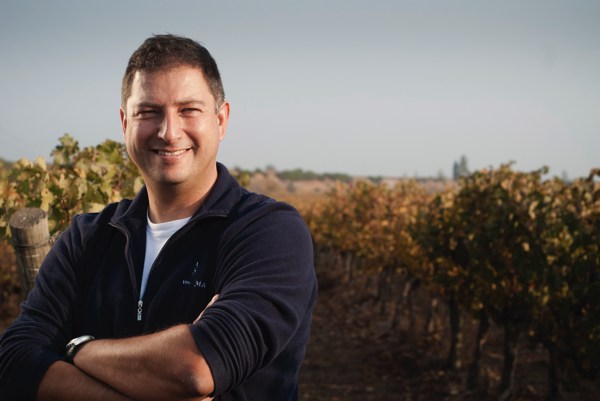Full name: Max Weinlaub
Role: Chief Winemaker
DOB: 31.03.73
Birthplace: Santiago, Chile.
Website: http://www.vinamaipo.com/en/
Fun Fact: “apparently not having Twitter or a Website is funny nowadays…”
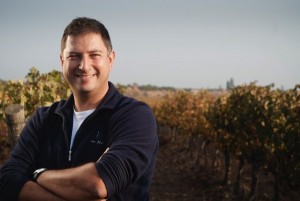
J: When did you start working in the industry?
M: My first practice as an intern was in 1998 at INIA (National Agricultural Research Centre) in Cauquenes city, Maule Valley, but my first job as a Winemaker started in November of 2000.
Did you always know you’d be working with wine?
Not at all!!! I grew up in Chiloe Island, one of the southernmost areas of Chile where dairy and beef production are the most important economic industries, so my first and only choice was to study Agriculture Engineering in the Universidad de Concepcion, in Chillan city. I chose that particular school due to its many agricultural productions in the surrounding area (crops, fresh fruit, wines, sugar beet, milk and meat, among others).
As there was no wine culture in my parents’ home, I started tasting some wines with my classmates. My first impression was not so good because it was difficult to understand how this harsh, sour and alcoholic beverage could be pleasant for somebody. But during the last semester of my career, I took a subject about Winemaking.
After the second class, I fell in love with this fascinating world – switching from milk to wine, and changing cows for vines. Since then it has been a constant learning process.
Did you come from a ‘foodie’ family?
Absolutely yes!!! Since I was a kid one of the values learned at home was a love and respect for food. Once living in Santiago I took a cooking course which was for men only. After some time we became like a brotherhood between the pots and knives, it was a cool experience!!! Today, my specialty is the grill but I’m trying to learn about other foods such as pasta, risotto, burgers and lately, homemade yoghurt!
Why is Syrah your favourite grape variety?
Syrah is like a chameleon, it has a particular property which allows it to acquire different expressions according to the terroir on which it’s planted. Here in Chile we have a great diversity of climates and soils where Syrah is able to produce different and interesting wines. For instance, Limarí Valley has a strong cool climate so the wines are very deep in colour, with a spicy and flowery nose and a fresh and vibrant acidity.
Maipo Valley, especially in the upper part of it, produces elegant and complex wines with a great ageing potential. Rapel Valley is a very good area to make drinkable Syrah; usually these are soft and fruity since young. And in Maule Valley this noble grape is able to produce powerful and concentrated wines with a clear New World character.
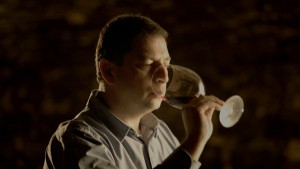
You also once said that you planned to one day produce the Chilean equivalent of Penfolds Grange – how is that going?
Penfolds Grange is one of those “101 wines to try before you die” and I did it (well, I still have around 97 wines left to taste but I’m not in a hurry to pass away yet). In 2005 I was still a fresh new winemaker and had the opportunity to taste Penfolds Grange 1998 among other well known iconic wines. At the same time in Chile, the first planted vines of Syrah were delivering very interesting results.
I still remember when I took the glass and started smelling and then feeling it in the mouth. It was like the first encounter with an unknown animal. The richness, complexity and power of that wine kept me astonished until the last sip. Silently I thought that someday our Syrah vines will be good enough to make a wine as great as Penfolds Grange. My aim is not to copy it, but this legendary wine has been extremely inspirational for me to create Alto Tajamar.
I once heard you say that they’d been ‘abusing oak’ in Chile – what do you mean by that? (i.e. Oaking the wines too much at the expense of subtlety?
I said that we have been ‘abusing oak’ in the sense of over using oak in our wines. During some ages the quality of a wine was measured by the amount of oak flavours. The fruit expression and the sense of origin was absolutely hidden under a heavy make-up of vanilla, cinnamon, smoke and tobacco flavours. But thank God, like a pendulum that goes from one extreme to the other until finally reaching its centre of gravity, the same has happened with oak usage in wines.
Today we are using less and better oak and in a wiser way, freeing the character of a particular grape cultivated in a specific terroir. I understand the oak as a secondary ingredient. For cooking, salt is important but only in the right amounts, you do not get the same taste if you add a teaspoon rather than a tablespoon and vice versa.
What, in your opinion, makes a good wine?
The quality/price ratio is a simple way to measure how good a wine is. But for a more sophisticated approach I could say that a good wine is a matter of balance between power and elegance: too much power and you get roughness, or too much elegance and you get weakness. All its components (acidity, alcohol, sweetness, tannins, etc.) must interact with each other and create a great experience for the senses.
Going into even more detail, the wine may be technically perfect but soulless. For me, the soul gives you the sense of origin and paternity. It’s the way that a winemaker “connects” with the vines of a place and tries to get the best from it and after some, time summarise it into a bottle!
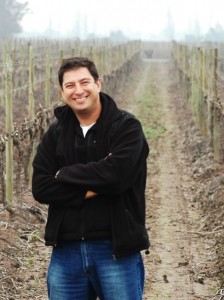
Would you say that the Maipo Valley has a terroir? If so, how would you describe it?
For me a terroir is a place in the world were a vine is able to express its potential in a particular way, or in other words, it’s a particular spot from where the wine has a special character.The interaction of an unique climatic pattern and soil composition defines the “signature” of a terroir and hence the wines produced there.
Moreover, the real terroirs shows its “pedigree” also on the bad years, during good years you can make good wines everywhere, but you have to keep in mind what I said before: it’s important to consider the behaviour of a X grape variety in a particular terroir. So in my opinion Maipo Valley (in general, but in particular the upper part of it near to the Andes Mountains such as Buin Area), is an extraordinarily good and distinctive terroir for Cabernet sauvignon and Syrah but not suitable for Sauvignon blanc or Carmenere.
Maybe you could compare grape varieties with people. For instance, some people are accustomed to live in the northern pole but if you change their environment to the Caribbean they will not feel very comfortable (well, you can fix it with some Margaritas).
What’s a ‘day in your life’ like? Could you give us an insight into the life of a winemaker?
A: It looks like a simple question but I could give you 365 different answers. One of the reasons I love my job as a Winemaker is that there is no option to get bored. Every day is different, unexpected and even sometimes chaotic. One day I could be driving hundreds of kilometers just to taste and choose the right barrels for a blend. Driving back to Santiago I answer some phone calls.
Maybe I have to stopover in a gas station to send an email, take a cup of coffee, grab a bottle of sparkling water and continue driving. Or the day after I have to meet with a wine journalist or take a plane towards some spot in on Earth to show my wines. Just during 2015 I spent 118 days travelling all over the world. Imagine – one in three days I was out of my own country!
This is not a job for everyone, because sometimes you have to spend long hours in the winery or away from home. For me, it’s difficult to imagine another work which could impassion me more.
What’s your greatest/most memorable professional moment been, so far?
For me, the wines are like my kids and I remember every step or milestone in their lives. All the wines I make are unique pieces and they have their own story behind them, but I remember with special affection when in 2014 “Protegido 2011” was chosen by LATAM (our national air carrier) to be served on board their Business Class for many international routes.
More than the deal between the winery and the airline for me to be selected by their Master Sommelier was proof and recognition of the high quality of our wines. We received feedback from business flyers asking where they could buy this Chilean Cabernet sauvignon they tasted at 30,000 feet. More than the medals and beyond the scores, knowing that this wine made their trip special or more enjoyable made me feel happy and rewarded.

Where do you get your ideas?
I keep open my mind and my senses in ON-mode. For instance, every time I travel, I meet new people and new points of view or perceptions. I get to know new cultures especially through their food as well. Maybe there will be linguistic barriers but the senses use a universal language. I also taste new varieties or different styles of wines and then try to apply some useful tips or ideas later on my wines.
Time is not only important for barrel ageing or for getting older vines – I’m getting older too!!!…and (hopefully) wiser to apply those ideas that I have collected along the years.
What’s the biggest challenge you’ve had, how did you overcome it, and what did you learn from it?
…definitely when I became Chief Winemaker of Viña Maipo in 2008. Since that moment I had the responsibility to continue the good name of the brand and expand the wine portfolio. Thanks to the advice of other winemakers and my previous knowledge, I think we going in the right direction.
I learnt the value of working with those who have more grey hairs than me (due to their experience), the importance of creating a strong team spirit and finally, the need to keep an open mind, ears and eyes.
Who’s the person who’s most inspired you in your work – food industry or otherwise? Is there anyone that you draw inspiration or strength from?
There are so many people that have contributed to make a better world within their fields. In the wine industry I could mention 3 names (amongst many others):
Max Shubert: Pioneering Aussie winemaker, father of Penfolds Grange. His history: defeating the bad reception of Grange at the beginning, his obstinacy and persistence in continuing to make it in secret and then finally, the deserved recognition. He is the best example of “follow your dreams and ideas with passion, despite the world saying you are wrong”.
Ignacio Recabarren: Chilean Winemaker, father of Amelia, Terrunyo and Carmín de Peumo, three flagships. I learnt from him the importance of taking care over details (at an almost insane level).
Marcelo Papa: Chilean winemaker in charge of Casillero del Diablo and Marques de Casa Concha. I was his assistant winemaker for 7 years or so. From him I learnt the skills to make high quality wines on a big scale by being practical and simple, these two characteristics don’t mean laziness at all. He’s the living proof that Mrs. Quality and Mr. Volume can work together.
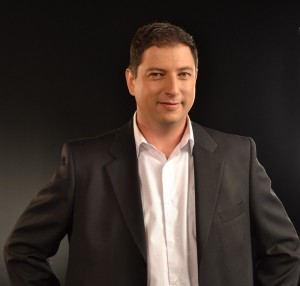
“No risk, no fun”
“To make good wines, drink beer”
“God writes straight with crooked lines”
Do you have any specific culinary influences?
I love Indian food because of its richness and spiciness. German food thanks to its sweet and sour savoury combinations. Spanish food too for the simple way they combine A+B+C and get X; tomato, garlic and olive oil are part of my First Aid Kit on the kitchen. I also admire the way that Argentineans grill any kind of 4-feet domestic animal (beef, pork, lamb or goat).
What do you enjoy most and least about what you do?
I enjoy most the blending sessions. Playing with different components sometimes just adding 1% more or less makes a great change in the wine until you get the “sweet spot”…that unique and perfect combination out of endless possibilities. Once you feel it there’s nothing else to try.
I enjoy least the bureaucracy: filling forms, Excel sheets or preparing reports – I don’t enjoy spending too much time in front of a screen.
What advice would you give to an aspiring winemaker who’d want the kind of results and career that you’ve had?
“Work hard in silence, always do your best and be patient…the rest will follow”
If you weren’t doing what you do now, what would you be doing instead?
Maybe I would be an industrial designer or architect. I enjoy looking at a building or a motorcycle and also even more simple things such as a knife or a chair. All those things are answers to human problems. So it’s interesting for me to understand how somebody got a practical answer but also adding value: beauty to be seen.
If you could get anyone to try your wines (fictional or real, living or dead) who would you pick and which of the wines would you like them to try? Assume that they go on to be your brand ambassador…
1) A real person: I would like to invite Sophia Loren and Frank Sinatra. Good music, glamour and sense of humour are guaranteed. The first bottle could be “Viña Maipo sparkling wine” to welcome them to our guest house, then a training session with Limited Edition 2012 and Alto Tajamar 2010. With such brand ambassadors everybody would like to be part of Maipoland.
2) A fictional person: Max Skinner (from the movie “A good year”). With our skills we could conquer the UK with Viña Maipo’s wines. I think that we could share a bottle of “Protegido” 2013 while a juicy sirloin is slowly cooking over the grill.
What’s your ultimate aim and goal for Viña Maipo? If you could achieve anything with it, what would you pick? Money and reality are no obstacle, so shoot for the moon…
A: I’d like to contribute to change the appreciation of Chilean wines all over the world. We are much more than just an inexpensive and reliable option in the shelf. We produce fantastic wines that can fairly compete against Old World wines in Michelin starred restaurants. We have human talent and diverse grapes adapted to incredible terroirs.
Where next for you and the business?
Top secret…work in progress. Our claim is “Keep exploring…there’s an endless world outside”
If you had to get into a no holds barred, 20 round fist fight with any fictional character, who would you square off against?
For sure against The Joker (from the movie “Batman”)…what annoying bad guy!!!
You have acquired a pet T-Rex and are morally obliged to look after it. It is 13 ft tall at the hips, eats half a ton of raw meat a day, and likes taking long walks. What would you call it and what would you do to keep it entertained and housed?
My pet would be known as ‘T’…Ice-T. He will be properly trained to use its sand box immediately after eating. Once “done” we can take a walk with a harness. Ice-T likes to play catching balls or sticks. Back at home my puppy is relaxed licking and biting a big bone while I scratch his back. The only problem are his snores when he sleeps (but impossible for the rest of the neighbourhood).
